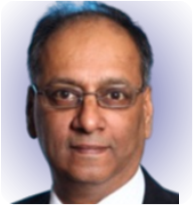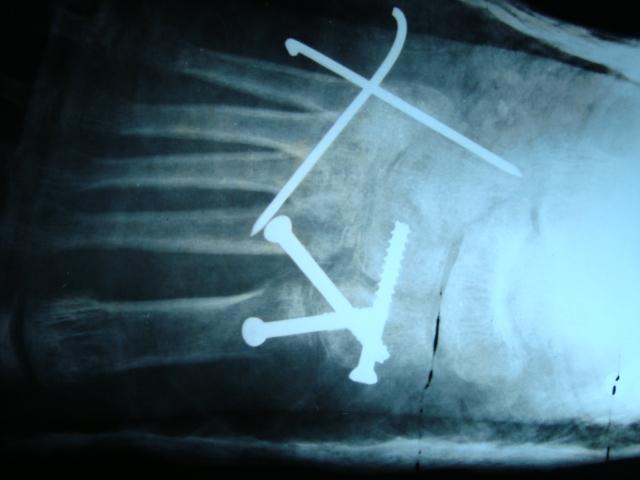Dr. Janki Sharan Bhadani, Department of Orthopaedics, Paras HMRI Hospital, Patna - 800 014, Bihar, India. E-mail: jsbhadani@gmail.com
Providing higher education is a dream of every Indian parent. Every Indian student goes through many hurdles while pursuing their career. During the 80s and 90s, a career in medicine was very rewarding for students and parents. The interest in pursuing medical education has slowly declined due to the many problems faced by the parents and their kin. Reasons might be many but initial hiccoughs are difficulty in getting admission into medical college. The second hurdle is securing a postgraduate seat. The current scenario of medical practice is entirely different than it was in the 60s and 70s when an MBBS medical graduation was enough to practice. Globalization has changed the current scenario and expectations of patient-doctor relations where a patient is looking for a specialist with in-depth knowledge about the problem and advanced care and treatment methods. Postgraduate education in orthopedics is divided into two main streams after MBBS. M.S. Orthopaedics where training is done at teaching hospitals and Diplomate of National Board (DNB) orthopedics where training is undergone at corporate hospitals usually, where the surgeons may be interested in teaching but not necessarily in a teaching faculty post. This has led to a debate about the equivalence of DNB and MS degrees, whether acquired from the government or private medical colleges or institutions. We know that DNB is a “centralized postgraduate degree” awarded directly by National Board of Examination (NBE), an autonomous body under the Union Ministry of Health and Family Welfare. It is believed that DNB is equivalent degree to MD/MS and is more recognized abroad as there is no room for manipulation of admission through centralized examination nor during exit examination as the examination center is usually away from the institution. Hence, many postgraduates appear for DNB examinations after passing MS/MD. Quality of DNB trainee depends mainly on the following factors: The number of beds in a hospital, existing infrastructure, and the presence of the experienced faculty – all these matters when a student chooses the institute to pursue the postgraduate course. After all the hurdles, the pass percentage of the DNB candidates is very low, and in spite of this, the number of eligible candidates wanting to pursue DNB courses of their choice is increasing every year but the number of seats, however, is not increasing. Recently, all postgraduate courses be it M.S. (Master of Surgery), DNB, or diploma have been clubbed together through National Eligibility and Entrance Test, which gives a higher chance to a candidate to get the specialty of his/her choice, but DNB Ortho won’t be the first choice as the pass percentage is very low compared to the M.S Ortho candidate. We wish to summarize the problems faced by a DNB trainee and the reasons for the low pass percentage and how to improve the pass percentage of the DNB trainee.
a. Candidature capacity versus responsibility of the course provider
b. Change in the pattern of question paper
c. Inequalities in the evaluation of answers
d. What are the reasons behind these and how to solve these issues?
Candidature Capacity versus Responsibility of the Course Provider
The competence of the candidates cannot be questioned in this competitive world. The performance of a candidate is better if he chooses the specialty by choice and not by compulsion. DNB trainees must start preparing for the exam from the initial days of training and should understand that essay writing of questions is of no use and should emphasize highlighting important points. Supposing a question is awarded 5 marks and the examiner expects five important points, it is important to write the answer point wise. Diagrams should not be drawn unless it is asked for or serve an important function. All the questions should be attempted in order and do not shuffle the answers. The candidate must leave the space and go to the next question if the candidate does not know the answer. Trainees should read standard books with concise write-ups. DNB training is mostly provided by well-equipped private or corporate hospitals. The screening of the provider institution on time is important to know the presence of the experienced faculty, how many cases are being done which are important for a trainee to learn like hip cases, neglected trauma, and other cases which are important for preparing a trainee for the clinical presentation of cases. How good that institute is in terms of providing clinical materials. DNB trainees sometimes work tirelessly without understanding the basics of orthopedics. They often get influenced by the decisions taken by the consultant without understanding the reason behind the decision which may not be a reasonable answer for an examination-going candidate. We need to teach how to successfully treat common pathologies, encourage postgraduates to engage in research work, evidence-based practice, ethical problem-solving skills, and tackle medicolegal problems. It is also important to learn how to work as a team as well as how to deal with a case alone.
Change in the Pattern of Question Paper
There is also a need to address the discrepancies in postgraduate education and examination to address the recent changes in the pattern of question papers for theoretical examinations. After looking at the recent memory-based question papers and discussions with experts from various institutions, it is felt that to make the DNB examination look different we have left out many common issues and dwelt more on unusual ones.
It is our responsibility to tell students what they should know and what an examiner wants from them. We are getting confused by seeing the rare and less important topics in the question papers. We do not challenge the pattern of questions chosen by experts. We must include more common diseases, common procedures, and surgeries that take place in the outpatient department, procedure room, or operation theater. The OSCE type practical examination might be a reason for poor results in practical examinations as the pattern is new in the Indian context but with time students will get used to this system and will become game changer in improving results as this will eliminate biases of the examiner in deciding the future of the trainee. We understood the reasons for the poor result after elementary observation of the orthopedics theory question paper. We wonder, why do not we make a common examination body which can set question papers for both MS and DNB examinations, and preferably, the same day the same question paper can be given to them and evaluated by the same body. We know that there is a lot to learn in post-graduation. We know how to inculcate learning and exploit that knowledge throughout our life. It is important not to miss out on orthopedic emergencies. However, when an examinee fails to find a rare disease, the examiner should show certain leniency in deciding who is a good and better candidate and they should not be tested on the parameters of success and failure. As a teacher, we have a responsibility to lead the way and tell our students how to approach a common pathology. At the same time, we have to tell them how to maintain a high degree of skepticism for orthopedic emergencies.
Inequalities in the Evaluation of Answers
It is the responsibility of the board to determine the depth of the answer for each question and give keys to the evaluator so that evaluators cannot be prejudiced or biased. There should be a neutral evaluator for verifying the correctness of the evaluation. One could say that this is just a technical problem. One school of thought says that these problems can be dealt with if evaluation is not a subjective exercise. There should be clear guidelines as to what you need to do to score maximum in a question. This can be possible by breaking up the questions or asking short questions or objective questions. Some of these methods were used in recent examinations and had a positive effect on the results. It helps the candidate to know more clearly what they are expected to write as an answer to the question itself. It could be so simple that if you know two answers, you get 1 mark, and if you do not know one, you lose half a mark. In this way, the evaluation is not left to the calligraphic skills of the examiners or the mood and state of mind, or even the personal interests of the evaluator. Not much should be left to the discretion of the evaluator. We can have a system where one answer sheet can be evaluated by multiple assessors. If there is a disparity between the first two evaluations, two more evaluations can be made and the average of the best two should be taken. This is important because what is at stake is the future of a candidate.
What are the Reasons Behind these and how to Solve these Issues?
One of the reasons for this is the recent pandemic. Our postgraduate students worked day and night; they also lost some colleagues and family members; in this situation, they were not able to concentrate on their studies as much as they would generally have liked to.
The question arises: Should the examiner be a little lenient, should we approach the issue sympathetically, and should we delay the examination further? Such an extraordinary medical situation has not happened in the past. It will not make us happy if we qualify in the DNB without working for it.
DNB Doctors Dilemma and Our Responsibilities while Dealing with Someone’s Future
What are the options for postgraduates affected by this issue? The postgraduates are using social platforms to make the system and the government aware. They have gotten attention from the media. Some health journalists are covering the matter. Some residents of DNB claim that some paid apps also affect results. However, we feel that it may provide a better platform for learning and aim at filling the knowledge gap, of course, at the cost of charging some fee. NBE has nothing to do with it but should be aware of it. There are many free and regular classes by NBE itself which are really helpful. Orthopaedics Research and Education Foundation, India, also organizes weekly postgraduate classes for Orthopedic Postgraduates every Tuesday at 7:00 PM along with Ortho TV. We choose only those topics which we think are important and relevant for the exam. When we’re dealing with someone’s future it should not seem to be overkill. Why do not DNB course providers, education board members, and controllers of examinations take some initiative and combine the decisions to make this system more transparent and uniform? Government must unify both the systems of education into one system and award one degree, which should be accepted everywhere. This will improve the social acceptance of the DNB degree. We know that there are many things to be raised for our postgraduates but the time has come to start questioning the same for a better future of healthcare. All this is because we should be responsible for giving an equitable system and better health care to our society.








